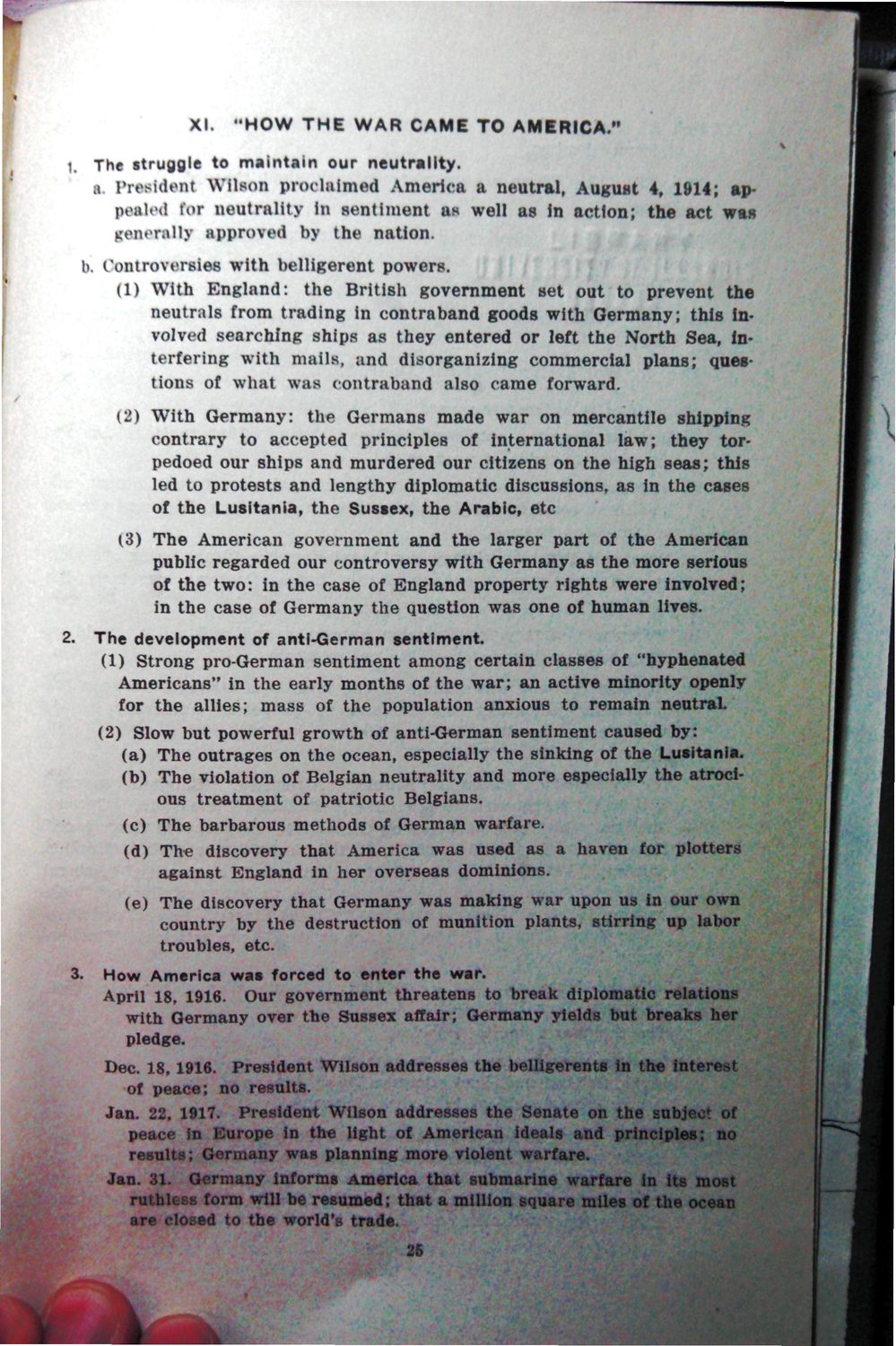Caption: War Publications - WWI Compilation 1923 - Article 49
This is a reduced-resolution page image for fast online browsing.

EXTRACTED TEXT FROM PAGE:
XI. I "HOW T H E WAR CAME TO AMERICA." 1. The struggle to maintain our neutrality. a. President Wilson proclaimed America a neutral, August 4, 1914; appealed for neutrality in sentiment as well as in action; the act was generally approved by the nation. Controversies with belligerent powers. (1) With England: the British government set out to prevent the neutrals from trading in contraband goods with Germany; this involved searching ships as they entered or left the North Sea, interfering with mails, and disorganizing commercial plans; quesalso came forward (2) With Germany contrary to accepted principles of international law; they torpedoed our ships and murdered our citizens on the high seas; this led to protests and lengthy diplomatic discussions, as in the cases of the Lusitania, the Sussex, the Arabic, etc (3) The American government and the larger part of the American public regarded our controversy with Germany as the more serious of the two: in the case of England property rights were involved; in the case of Germany the question was one of human lives. 2. The development of anti-German sentiment. (1) Strong pro-German sentiment among certain classes of "hyphenated Americans" in the early months of the war; an active minority openly for the allies; mass of the population anxious to remain neutral (2) Slow but powerful growth of anti-German sentiment caused by: (a) The outrages on the ocean, especially the sinking of the Lusitania. (b) The violation of Belgian neutrality and more especially the atrocious treatment of patriotic Belgians. (c) The barbarous methods of German warfare. (d) The discovery that America was used as a haven for plotters against England in her overseas dominions. (e) The discovery that Germany was making war upon us in our own country by the destruction of munition plants, stirring up labor troubles, etc. 3. How America was forced to enter the war. April 18, 1916. Our government threatens to break diplomatic relations with Germany over the Sussex affair; Germany yields but breaks her pledge. Dec. 18, 1916. President Wilson addresses the belligerents in the interest of peace; no results. Jan. 22, 1917. President Wilson addresses the Senate on the subject of peace in Europe in the light of American ideals and principles; no results; Germany was planning more violent warfare. Jan. 31. Germany informs America that submarine warfare in its most ruthless form will be resumed; that a million square miles of the ocean are closed to the world's trade. 26
|